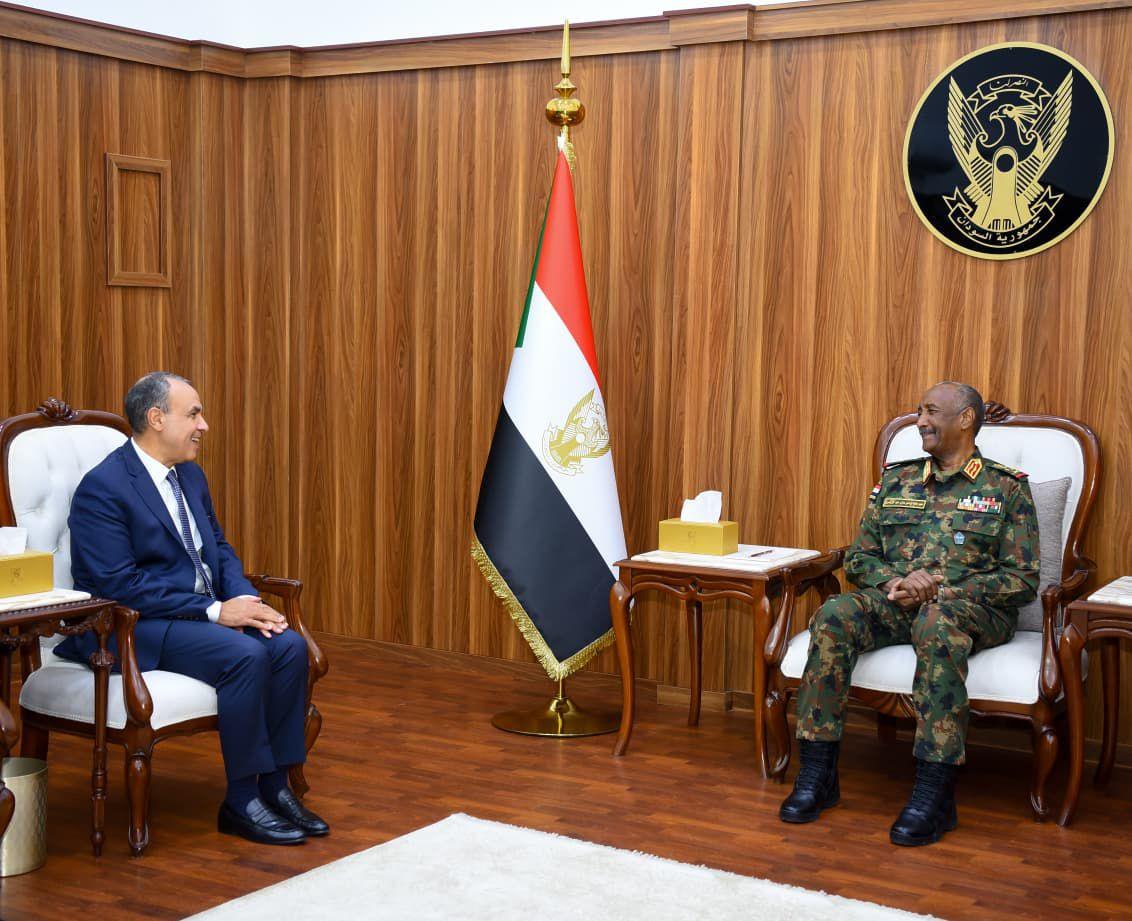
Egypt Steps Up Diplomacy To Contain Sudan Crisis As UN Sounds Alarm Over El-Fasher Atrocities
During a visit to Port Sudan on Tuesday, Egypt's Foreign Minister Badr Abdelatty met with Abdel Fattah Al-Burhan, Chairperson of Sudan's Transitional Sovereign Council, conveying President Abdel Fattah Al-Sisi's greetings and reaffirming Egypt's unwavering support for Sudan's unity, security, and stability.
Abdelatty emphasized Egypt's“complete solidarity with Sudan and its national institutions, foremost among them the Sudanese Armed Forces,” and reiterated Cairo's ongoing efforts to secure a ceasefire through bilateral, regional, and international channels. He also reaffirmed Egypt's backing for the 'Government of Hope' led by Kamal Idris and condemned the“atrocities committed in El-Fasher.”
The minister called for the immediate establishment of humanitarian corridors to ensure unimpeded aid delivery, alongside greater relief coordination with international organizations to address the worsening humanitarian crisis.
In a separate meeting with Sudanese Foreign Minister Mohieddin Salem, both sides discussed expanding cooperation in electricity, water, health, education, and reconstruction, and agreed to convene the Second Egypt–Sudan Business Forum in 2025, along with a joint trade committee meeting in Cairo. The ministers also reaffirmed their unified stance as downstream Nile Basin states, rejecting any unilateral measures in the Eastern Nile region.
A trilateral meeting in Port Sudan brought together Abdelatty, Salem, and UN Under-Secretary-General for Humanitarian Affairs Tom Fletcher to discuss strengthening international humanitarian responses to Sudan's crisis. Abdelatty reaffirmed Egypt's“commitment to alleviating the suffering of the Sudanese people,” noting that Egypt continues to facilitate the flow of aid through its land, sea, and air crossings.
On the ground, the Rapid Support Forces (RSF) announced a large-scale mobilization to attack Babnousa, a strategic city in West Kordofan long besieged by RSF fighters. Military sources said the city came under intense shelling and drone strikes, while Army Assistant Commander Yasser al-Atta confirmed that General Al-Burhan had ordered troops to advance westward toward Darfur.
Meanwhile, RSF political adviser al-Basha Tibiq accused the army of“recycling old war-based policies for political gain,” calling instead for a“genuine national alliance” to resolve the conflict politically.
The latest escalation follows the RSF's capture of El-Fasher on October 26, ending the army's 18-month defense of Darfur's last stronghold. Since then, UN agencies and human rights organizations have reported mass killings, ethnic violence, and widespread sexual assaults.
UN High Commissioner for Human Rights Volker Türk warned that the situation in El-Fasher could constitute genocide, saying in an interview with AFP that civilians were trapped“in horrific conditions, without food or water... some resorted to eating animal feed and peanut husks to survive.” He confirmed that his office had received evidence of mass executions and shootings targeting civilians attempting to flee.
“Whether or not it is legally termed genocide is for experts to decide later,” Türk said.“But we cannot wait. We must act now.”
The UN Office for the Coordination of Humanitarian Affairs (OCHA) said more than 82,000 people have fled El-Fasher and surrounding areas since October 26, warning that needs far exceed available resources. Funding for Sudan's 2025 Humanitarian Response Plan currently stands at just 28% of the required $4.16bn.
World Health Organization Director-General Tedros Adhanom Ghebreyesus mourned the killing of Adam Ibrahim Ismail, a doctor executed by RSF fighters in El-Fasher, and called for an immediate end to violence against healthcare workers.
The International Committee of the Red Cross (ICRC) warned that some 30 million Sudanese now require humanitarian assistance, as waves of displacement continue from Darfur and Kordofan toward northern Sudan. More than 500 families from Bara have reportedly arrived at refugee camps in Dongola and Al-Afad.
Egypt's stepped-up diplomacy comes amid growing regional and international appeals to unite efforts toward a nationwide ceasefire and a comprehensive political process to end the war-now one of the world's worst humanitarian crises.

Legal Disclaimer:
MENAFN provides the
information “as is” without warranty of any kind. We do not accept
any responsibility or liability for the accuracy, content, images,
videos, licenses, completeness, legality, or reliability of the information
contained in this article. If you have any complaints or copyright
issues related to this article, kindly contact the provider above.
















Comments
No comment